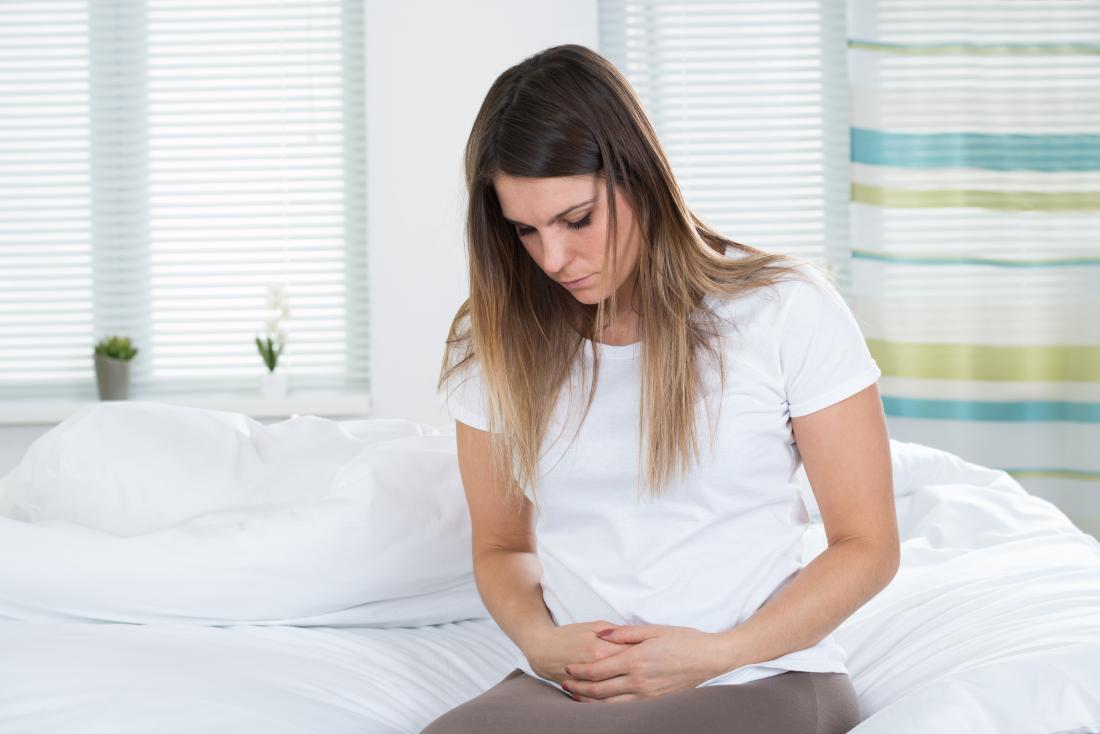What causes abdominal bloating?
There are many possible causes of abdominal bloating, including fluid retention, irritable bowel syndrome, and infection. However, for most people, the cause of bloating will be fairly harmless, and it can be treated at home.
Abdominal bloating can be alarming, particularly when it is very painful. Some people notice that their belly looks swollen or misshapen, or they may experience sharp abdominal pain. Yet in many cases, the cause may be something as simple as indigestion or too much gas building up in the stomach and bowels.
Bloating is rarely a cause for concern if it:
is associated with food or eating
does not get worse with time
goes away within a day or two
In this article, we look at the causes of abdominal bloating, how to treat it, and when to see a doctor.
Causes
Abdominal bloating is not unusual. Many people experience the same type of bloating again and again. Bloating that follows a predictable pattern is usually nothing to worry about.
When the pattern changes or the bloating becomes worse than normal, it may be because of one of the following conditions:
Gas
A buildup of gas in the stomach and intestines is among the most common causes of bloating. Other possible symptoms include:
- excessive belching
- excessive flatulence
- feeling an intense urge to have a bowel movement
- feeling nauseous
Bloating caused by gas ranges from mild discomfort to intense pain. Some people describe feeling as if there is something trapped inside their stomach.
Gas can be caused by:
- certain foods, including cruciferous vegetables, such as cauliflower, broccoli, and cabbage
- a stomach infection
- chronic illnesses, such as Crohn’s disease
- indigestion
- a range of other conditions
In most cases, gas goes away on its own after a few hours.
Indigestion
Indigestion, sometimes called dyspepsia, is discomfort or pain in the stomach. Most people experience brief episodes of indigestion from time to time.
It is often caused by:
- eating too much
- excessive alcohol
- medications that irritate the stomach, such as ibuprofen
- a minor stomach infection
Frequent indigestion that does not appear to be associated with food or other apparent causes could be a sign of something more serious. Possible causes include a stomach ulcer, cancer, or liver failure.
Infection
Stomach infections can cause gas, which may also be accompanied by:
- diarrhea
- vomiting
- nausea
- stomach pain
These are often due to bacteria such as Escherichia coli or Helicobacter pylori, or a viral infection such as norovirus or rotavirus.
Stomach infections usually go away on their own after a few days. However, some people may become severely dehydrated or continue to get worse over several days. These individuals should see a doctor if the bloating coincides with:
- fever
- bloody stool
- severe and frequent vomiting
Small intestinal bacterial overgrowth (SIBO)
The stomach and intestines are home to a variety of bacteria, many of which help the body digest food. Disturbing the balance of these bacteria can lead to an increase in harmful bacteria present in the small intestine. This is known as small intestinal bacterial overgrowth or SIBO.
SIBO can cause bloating, frequent diarrhea, and may lead to difficulties digesting food and absorbing nutrients. For some people, SIBO can lead to osteoporosis or unintentional weight loss.
Fluid retention
Eating salty foods, having food intolerances, and experiencing changes in hormone levels can all cause a person’s body to retain more fluid than it would otherwise. Some women find that they are bloated immediately before getting their periods or early in pregnancy.
Chronic bloating due to fluid retention could have a more serious cause, such as diabetes or kidney failure. If the bloating does not go away, a person should speak to a doctor.
Food intolerances
Some people become bloated after eating certain foods. For example, people who are lactose intolerant, or who have a gluten allergy or celiac disease. The bloating usually goes away on its own but may be linked to diarrhea or stomach pain.
Chronic disorders
Chronic gut disorders, such as irritable bowel syndrome (IBS) and Crohn’s disease, can also cause frequent bloating. Crohn’s disease causes inflammation of the digestive tract, whereas IBS is poorly understood and is often diagnosed when chronic gut symptoms have no obvious cause.
Both IBS and Crohn’s can cause gas, diarrhea, vomiting, and unintentional weight loss.
Gastroparesis
Gastroparesis is a disorder that affects normal stomach emptying. The stomach muscles stop working properly, which causes food to pass much more slowly through the stomach and intestines.
Symptoms include:
- bloating
- constipation
- feeling full very quickly when eating
- loss of appetite
- heartburn
- nausea and vomiting
- pain and discomfort
Another condition, such as diabetes or hypothyroidism, usually causes gastroparesis.
Gynecological disorders
Some gynecological problems cause stomach pain. In some women, endometriosis can cause cramping and bloating. This happens when the lining of the womb attaches to the stomach or intestines.
Referred pain from the pelvis may also resemble that of bloating.
Constipation
Constipation often causes bloating. Causes of constipation include:
- dehydration
- not enough fiber in the diet
- food intolerance
- pregnancy
- certain bowel disorders
- nutrient deficiencies, including magnesium
- certain medicines
In most people, episodes of constipation are short-lived.
Other causes
Less commonly, abdominal bloating may be due to other serious conditions. People with gallstones or gallbladder disease may experience intense abdominal pain that mimics bloating. Cancers of the stomach or intestines may also lead to abdominal discomfort and bloating.
Ascites is another condition that leads to abdominal pain and bloating. Ascites is a buildup of fluid in the abdominal cavity over a period of time. The most common cause of this is liver disease.
Treatments and home remedies
Bloating can usually be safely treated at home. Some options that may help include:
- over-the-counter medications, including antacids or bismuth salicylate (Pepto-Bismol)
- applying a heat pad to the stomach
- drinking water
- eating peppermint
- drinking carbonated water
- taking a laxative to relieve constipation
Keeping a food diary to monitor bloating can also be useful. This can help with diagnosing food intolerances and making healthy lifestyle changes. Many people find that simply avoiding certain foods can prevent bloating and other gastrointestinal health issues.
When to see a doctor
Rarely, bloating could be a sign of something more serious. A person should see a doctor for bloating associated with:
- intense pain
- a fever
- vomiting lasts longer than 24 hours, or if it is impossible to keep any food down
- bloody stools
- a physical injury, such as a punch to the stomach or a car accident
- rapid swelling of the abdomen or anywhere else in the body
- surgery
- liver or kidney failure
Outlook
Abdominal bloating can be disconcerting and painful. For most people, the cause can be treated at home and will be something simple. A person should speak to a doctor if the symptoms get worse or do not go away after a few days.


